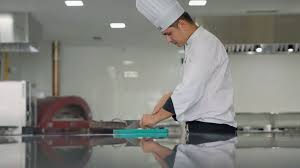
Diploma in Food Science (2 Year)
Diploma in Food Science – 2 Years Syllabus
Year 1: Foundation in Food Science & Nutrition
1. Introduction to Food Science
- Definition and scope of food science
- Components of food (macro and micronutrients)
- Food groups and dietary guidelines
- Food spoilage and shelf-life
2. Food Chemistry
- Water activity and its role in food
- Carbohydrates, proteins, and fats – structure and functions
- Browning reactions (enzymatic and non-enzymatic)
- Role of vitamins and minerals in food systems
- Food additives and their classification
3. Food Microbiology
- Classification of microorganisms in food
- Microbial growth factors
- Spoilage organisms and foodborne pathogens
- Fermented foods and probiotics
- Hygiene and sanitation in food handling
4. Principles of Human Nutrition
- Balanced diet and RDA
- Nutritional needs across life stages (infants, children, elderly)
- Deficiency diseases (scurvy, anemia, kwashiorkor, etc.)
- Diet planning basics
5. Basics of Food Processing
- Importance and objectives of processing
- Thermal processing (blanching, pasteurization, sterilization)
- Refrigeration and freezing
- Drying and dehydration methods
- Chemical and biological food preservation
6. Food Safety & Hygiene
- Importance of hygiene in food industry
- Personal hygiene and sanitation practices
- Pest control
- Introduction to food safety laws and regulations
Year 2: Application & Industry-Oriented Training
1. Food Quality Control & Assurance
- Quality attributes of food (sensory, physical, chemical, microbial)
- Food adulteration and detection methods
- Quality control tests and techniques
- Introduction to HACCP, ISO, FSSAI guidelines
2. Food Analysis Techniques
- Sampling methods
- Moisture, protein, fat, and ash determination
- Analytical instruments: Spectrophotometry, Chromatography
- Nutritional labeling and calculations
3. Food Packaging Technology
- Functions of packaging
- Types of packaging materials (glass, plastic, metal, paper)
- Modern packaging techniques (MAP, vacuum packing)
- Labelling requirements (nutritional, legal)
4. Processing of Specific Foods
a. Dairy Technology
- Milk processing (pasteurization, homogenization)
- Cheese, yogurt, butter, and ghee production
- Ice cream manufacturing
b. Bakery and Confectionery Technology
- Bread, biscuit, and cake making
- Chocolates and sugar confectioneries
- Leavening agents and baking faults
c. Fruits and Vegetable Technology
- Preservation methods (pickling, canning, drying)
- Juice and jam production
- Spoilage and post-harvest losses
d. Meat, Fish & Poultry Technology
- Slaughtering process and hygiene
- Meat preservation (chilling, curing, freezing)
- Fish processing and value-added products
5. Entrepreneurship Development
- Food business planning and management
- Licensing and legal requirements (FSSAI, MSME)
- Cost estimation and budgeting
- Marketing and branding strategies
6. Industrial Training / Project Work
- Internship in food processing unit / lab
- Project on new food product development or quality testing
- Report writing and viva presentation

